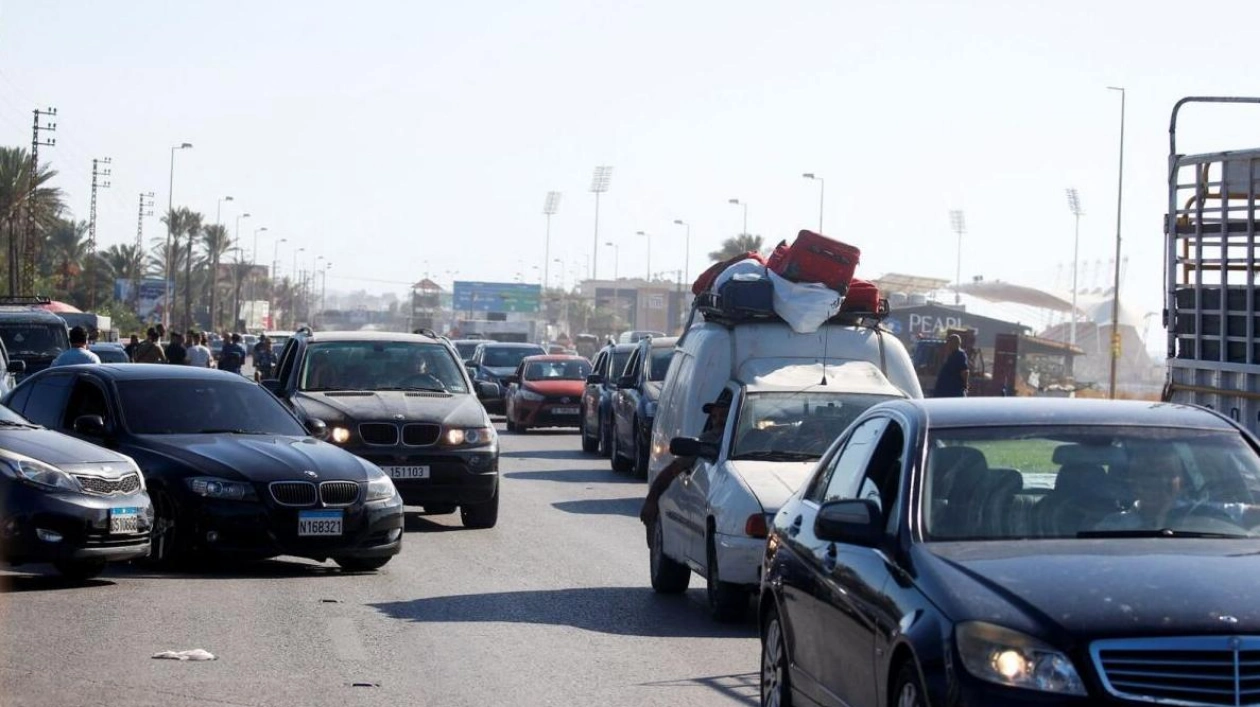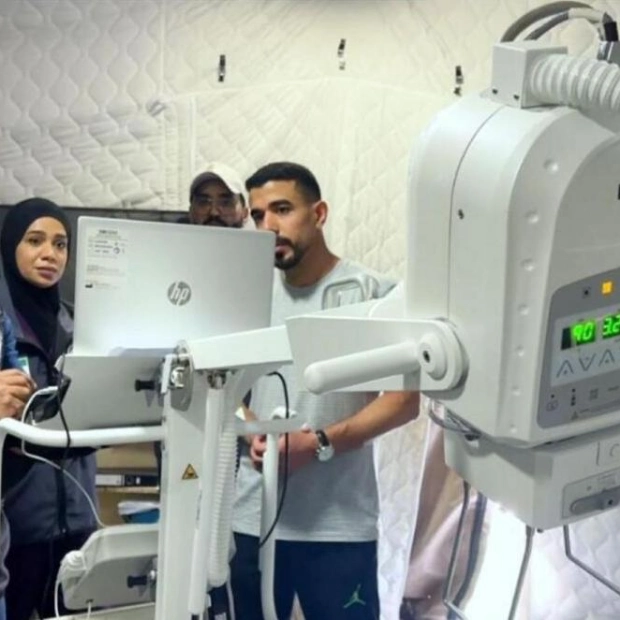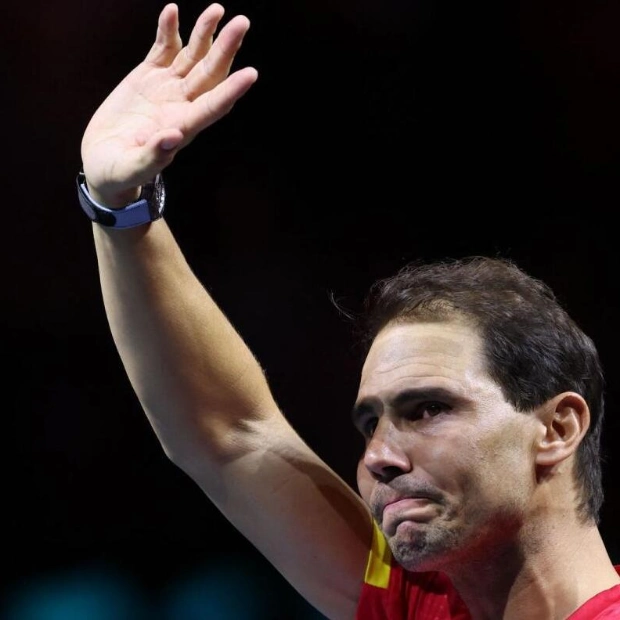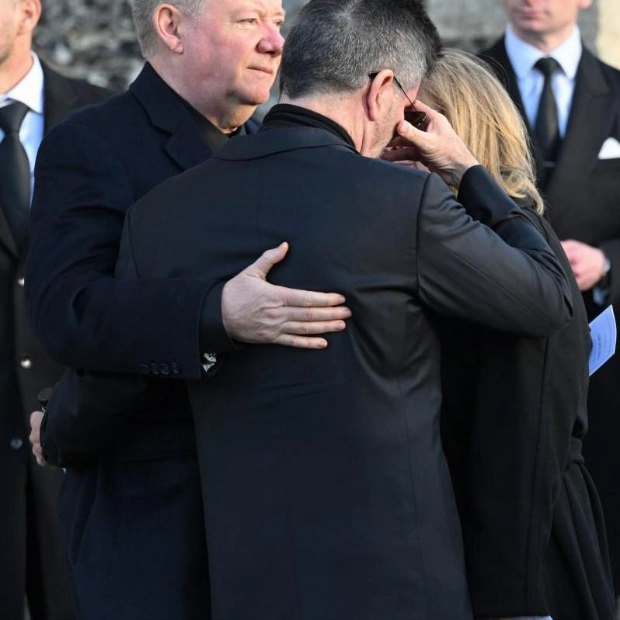Israel's military confirmed on Monday that it had conducted airstrikes against Hezbollah targets in Lebanon, resulting in the deaths of 492 people, according to Lebanese authorities. This marked the deadliest day in Lebanon in decades, prompting tens of thousands to flee for safety. Families from southern Lebanon packed vehicles with belongings and family members, often spanning multiple generations. As bombs fell, children crowded onto parents' laps and suitcases were secured to car roofs. The highways leading north became gridlocked. "I grabbed all the important papers and we got out. Strikes were all around us. It was terrifying," recounted Abed Afou, who was with his family, including three sons aged 6 to 13 and several other relatives. They sat in traffic as it slowly moved north, unsure of their destination but intent on reaching Beirut.
Nasser Yassin, the Lebanese minister coordinating the crisis response, informed Reuters that 89 temporary shelters in schools and other facilities had been activated, with capacity for over 26,000 people, as civilians fled what were described as "Israeli atrocities". Following some of the heaviest cross-border exchanges of fire since hostilities began in October, Israel warned people in Lebanon to evacuate areas where it claimed Hezbollah was storing weapons. Israeli Prime Minister Benjamin Netanyahu addressed the Lebanese people in a short video statement, clarifying that "Israel's war is not with you, it's with Hezbollah. For too long Hezbollah has been using you as human shields."
After nearly a year of war against Hamas in Gaza, Israel is now focusing on its northern frontier, where Hezbollah has been launching rockets in support of Hamas. The Israeli military reported striking Hezbollah targets across Lebanon, including "launchers, command posts, and terrorist infrastructure." The Israeli Air Force claimed to have hit about 1,600 Hezbollah targets in southern Lebanon and the Bekaa Valley. Lebanon's health ministry reported at least 492 deaths, including 35 children, and 1,645 wounded. One Lebanese official described it as the highest daily death toll from violence since the 1975-1990 civil war.
The escalating conflict has raised concerns that the U.S., a close ally of Israel, and Iran could be drawn into a broader war. Saudi Arabia expressed deep concern and urged restraint, according to the state news agency SPA. A senior U.S. State Department official stated that the United States does not support cross-border escalation between Israel and Hezbollah and is discussing "concrete ideas" with allies and partners to prevent the war from expanding. Israeli officials have indicated that the recent increase in airstrikes on Hezbollah targets in Lebanon aims to force the Iran-aligned group to agree to a diplomatic solution. The U.S. official, briefing reporters in New York, emphasized the Biden administration's focus on "reducing tensions... and breaking the cycle of strike-counterstrike."
Iranian President Masoud Pezeshkian accused Israel of seeking to drag the Middle East into a full-scale war by provoking Iran to join the Israel-Hezbollah conflict. "It is Israel that seeks to create this all-out conflict," he said, warning of irreversible consequences. Israeli Defense Minister Yoav Gallant described Monday as a "significant peak" in the nearly year-long conflict, stating that "tens of thousands of rockets and precise munitions" had been neutralized. Hezbollah later confirmed that senior leader Ali Karaki, targeted in an Israeli strike on Beirut's southern suburbs, was safe and had moved to a secure location. However, Hamas' armed wing reported that its field commander in southern Lebanon, Mahmoud al Nader, was killed in an Israeli air strike.
Rear Admiral Daniel Hagari stated that Israeli strikes had targeted long-range cruise missiles, heavyweight rockets, short-range rockets, and explosive drones. In response, Hezbollah launched dozens of missiles at a military base in northern Israel. Sirens warning of Hezbollah rocket fire sounded across northern Israel, including in the port city of Haifa, and in the northern part of the occupied West Bank. Approximately 60,000 people have been evacuated from northern Israel due to the cross-border fighting. Gallant said the campaign would continue until residents could return to their homes, while Hezbollah vowed to fight until there is a ceasefire in Gaza.
Hagari accused Hezbollah of placing weaponry "inside Lebanese villages and civilian homes, and intending to fire them toward civilians in Israel while endangering the Lebanese civilian population." Hezbollah has not commented on the claim that it has hidden weapons in houses, which Reuters could not independently verify, but it has stated that it does not place military infrastructure near civilians. The strikes have intensified pressure on the group, which last week suffered heavy losses when thousands of pagers and walkie-talkies used by its members exploded. The operation was widely attributed to Israel, which has neither confirmed nor denied responsibility. The foreign ministers of the Group of Seven major democracies warned that the Middle East risked being dragged into a broader conflict that no country would benefit from, according to a statement released after meeting on the sidelines of the UN General Assembly.






